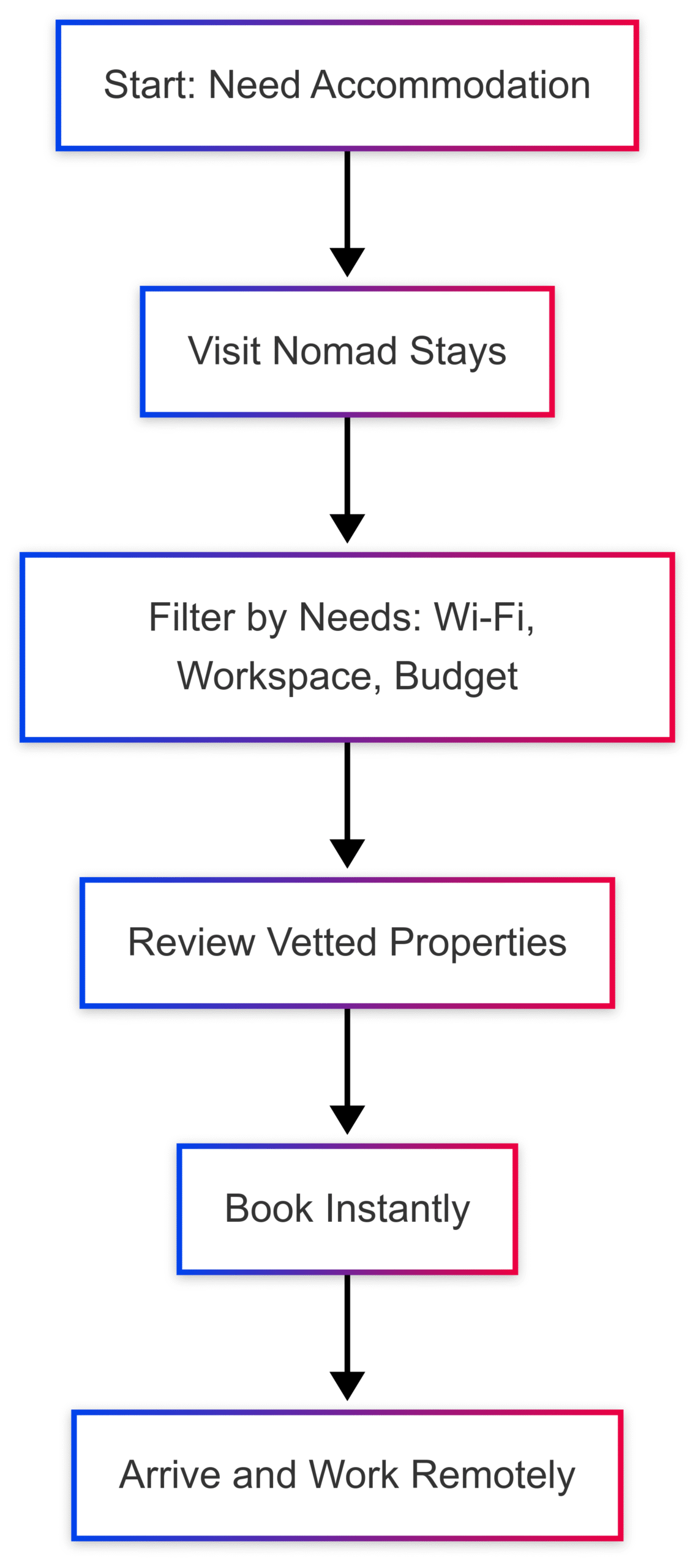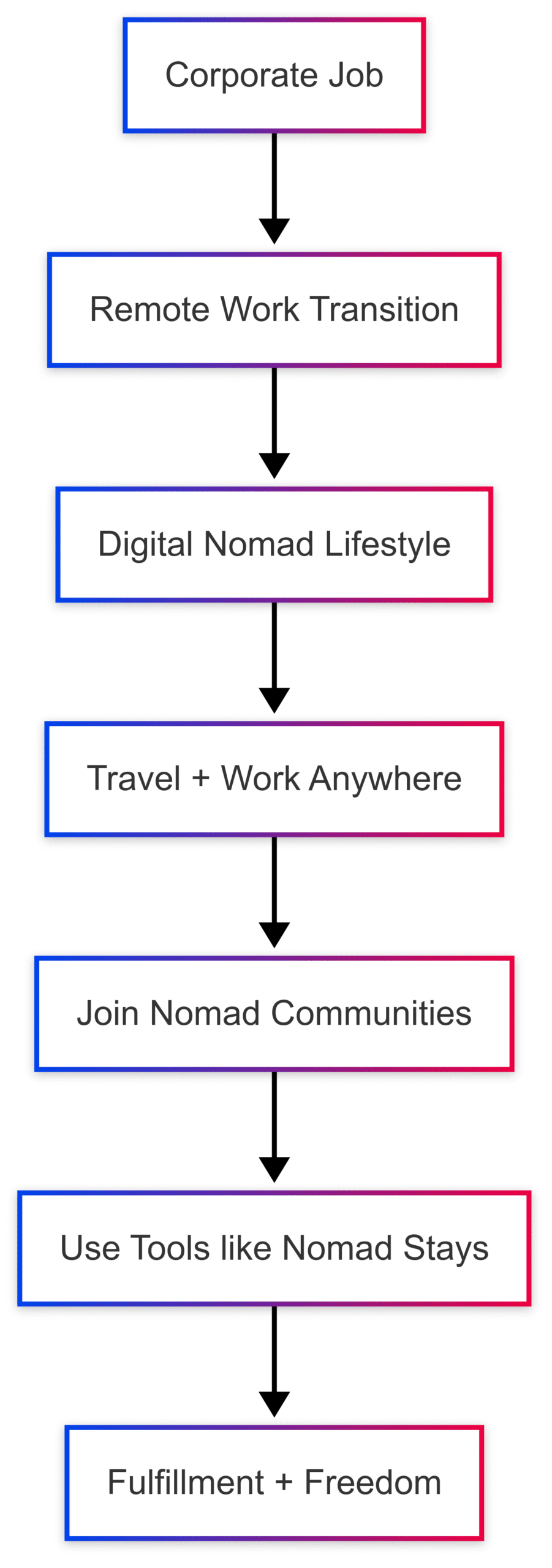Discover how to escape corporate America for a fulfilling remote work and travel lifestyle. Learn practical steps, financial strategies, and tools for digital nomads.
For many, the corporate world represents stability, success, and a clear career path. But what happens when the corner office, steady paycheck, and structured routine no longer fulfill you? The dream of escaping corporate America to pursue a life of freedom, travel, and meaningful work has gained traction, especially during the transformative years of the global pandemic. The shift to remote work, accelerated by necessity, opened new possibilities for professionals to redefine their careers and lifestyles. This article explores the journey of transitioning from a traditional corporate job to a location-independent life, offering practical steps, financial strategies, and insights from those who’ve successfully made the leap.
The Corporate Dream: A Reality Check
The allure of corporate life often begins early. For many, it’s the vision of a prestigious job, a comfortable office, and tangible markers of success—like a diploma on the wall or a view of the city skyline. Yet, after years of climbing the corporate ladder, some find the reality less rewarding. Long hours, rigid schedules, and a disconnect from personal passions can lead to burnout and a yearning for change.
The pandemic was a turning point. As offices closed and remote work became the norm, employees discovered they could perform their roles effectively from anywhere. This realization challenged the traditional corporate model and sparked a movement toward location independence. Professionals began questioning why they couldn’t work from a beach in Croatia or a café in Lisbon, leveraging technology to maintain their careers while exploring the world.
Planning the Escape: Steps to Freedom
Escaping corporate America requires careful planning, especially when transitioning to a remote work and travel lifestyle. Below are the key steps to make this dream a reality.
Step 1: Assess Your Career Options
The first hurdle is determining how to sustain your career while embracing mobility. For some, this means negotiating a remote arrangement with their current employer. The pandemic proved that many roles—especially in fields like customer success, tech, and finance—can be performed remotely without sacrificing productivity. If your employer is resistant, consider these alternatives:
- Seek Fully Remote Jobs: Platforms like LinkedIn, We Work Remotely, and FlexJobs list thousands of remote positions across industries. Focus on roles that align with your skills but offer location flexibility.
- Freelancing or Consulting: Use your expertise to offer freelance services or consulting. Sites like Upwork and Fiverr connect professionals with clients seeking specific skills.
- Sabbatical or Mini-Retirement: If financially feasible, take a break to explore new opportunities or upskill in a high-demand remote field, such as digital marketing or software development.
Step 2: Financial Preparation
Financial stability is critical when transitioning to a nomadic lifestyle. Here’s how to prepare:
- Build a Savings Buffer: Aim to save at least 6–12 months of living expenses to cover periods of unemployment or unexpected costs. This might involve cutting discretionary spending, selling unnecessary possessions, or downsizing your lifestyle.
- Reduce Debt: Pay off high-interest debts to minimize financial obligations while traveling.
- Diversify Income Streams: Explore side hustles like blogging, affiliate marketing, or online courses. For example, a travel blog can generate income through ads, sponsorships, or affiliate links.
- Budget for Travel: Research the cost of living in your desired destinations. Countries like Serbia, Mexico, or Thailand offer lower costs than Western cities, stretching your savings further.
| Destination | Monthly Cost of Living (USD) | Key Considerations |
|---|---|---|
| Belgrade, Serbia | $1,000–$1,500 | Affordable housing, reliable internet, vibrant culture |
| Playa del Carmen, Mexico | $1,200–$2,000 | Beach lifestyle, coworking spaces, moderate climate |
| Chiang Mai, Thailand | $800–$1,300 | Low cost, digital nomad hubs, warm weather |
Step 3: Test the Waters
Before fully committing, test your remote work setup. Start by working remotely from home to ensure your role is sustainable without an office. Experiment with short-term travel—perhaps a month in a nearby city—to identify challenges like time zone differences or internet reliability. These trials help refine your approach and build confidence.
Step 4: Research Accommodations
Finding suitable accommodations is a major challenge for digital nomads. You need a space that’s safe, comfortable, and equipped for remote work. Platforms like Nomad Stays simplify this process by curating properties tailored to digital nomads, ensuring reliable Wi-Fi, workspaces, and reasonable pricing. Unlike traditional booking platforms, Nomad Stays partners with local tourism boards and property owners to offer vetted options in 62 countries.

Step 5: Build a Support Network
Transitioning to a nomadic lifestyle can be isolating. Join online communities like Executive Remote Worker or Digital Nomad Girls to connect with others who share your goals. These platforms offer advice, job leads, and emotional support. Local coworking spaces in travel destinations also provide networking opportunities and a sense of community.
The Pandemic’s Role in Redefining Work
The global pandemic was a catalyst for rethinking work. Companies that once resisted remote arrangements were forced to adapt, and many discovered that productivity remained high—or even improved. Employees, in turn, experienced newfound autonomy, with the flexibility to structure their days around personal priorities. This shift dismantled the myth that work must be tied to a physical office, empowering professionals to pursue location-independent careers.
For those considering an escape from corporate America, the pandemic highlighted several truths:
- Remote Work is Viable: Industries from tech to finance successfully transitioned to remote models, proving that location is often irrelevant.
- Flexibility Enhances Productivity: Studies show that remote workers are often more productive due to fewer distractions and personalized work environments.
- Mental Health Matters: The freedom to work from inspiring locations—like a yacht in Croatia or a mountain cabin—can reduce stress and boost well-being.
Real Stories of Escape
The journey to escape corporate America is deeply personal, and the paths vary widely. Here are some inspiring stories from individuals who made the transition:
- From Corporate to Nomad: Kristie, an accounting professional, left her corporate job after securing a severance package. She now travels full-time, managing a travel blog and an online community for remote executives. Her travels have taken her to Serbia, Croatia, and Mexico, where she balances work and exploration.
- Reinventing Leadership: A senior engineer at a software company took a three-month leave after burnout. By delegating responsibilities and focusing on mentoring, he returned to a more balanced role, proving that corporate life can be reshaped without leaving entirely.
- From Airport to Freedom: A middle manager in aviation security quit a grueling corporate job to drive a school bus part-time and write full-time. His travel blog, initially a side project, now generates significant income, allowing him to work 30 hours a week while enjoying life.
- Coastal Simplicity: After inheriting a farm, one individual left a corporate job to live in a coastal town. Farming and community engagement replaced the corporate grind, offering a slower, more fulfilling life.
- Creative Pivot: A graphic designer transitioned to tattoo artistry, finding reward in creative freedom and flexible hours. This shift highlights how skills honed in corporate roles can fuel entrepreneurial ventures.
These stories underscore a common theme: escaping corporate America doesn’t always mean abandoning work entirely. Instead, it’s about aligning your career with your values, whether through remote work, freelancing, or entirely new paths.
Tools and Resources for Digital Nomads
To succeed as a digital nomad, you need the right tools and resources. Here’s a curated list:
| Tool/Resource | Purpose | Cost |
|---|---|---|
| Nomad Stays | Find vetted accommodations with Wi-Fi and workspaces | $0 (booking fees vary) |
| Zoom | Video conferencing for remote work | Free–$19.99/month |
| Trello | Project management for freelancers | Free–$17.50/month |
| Wise | Low-cost international money transfers | 0.4%–2% per transaction |
| ExpressVPN | Secure internet access for remote work | $6.67–$12.95/month |
Technology Setup
A reliable tech setup is non-negotiable. Invest in:
- Laptop: A lightweight, powerful laptop like the MacBook Air ($999–$1,249) or Dell XPS 13 ($949–$1,399).
- Portable Wi-Fi Router: Devices like the GlocalMe G4 Pro ($169.99) ensure internet access globally.
- Noise-Canceling Headphones: Bose QuietComfort 45 ($329) for focused work in noisy environments.
Financial Tools
Managing finances across borders is crucial. Use apps like:
- YNAB (You Need a Budget): Budgeting software ($14.99/month or $99/year) to track expenses.
- Revolut: Multi-currency banking for nomads (free–$16.99/month for premium plans).
Challenges and Solutions
The nomadic lifestyle isn’t without challenges. Here’s how to address common hurdles:
- Challenge: Unreliable Internet
- Solution: Use coworking spaces or accommodations verified by platforms like Nomad Stays. Carry a portable Wi-Fi router as a backup.
- Challenge: Loneliness
- Solution: Join digital nomad communities or attend local meetups. Coworking spaces often host networking events.
- Challenge: Time Zone Conflicts
- Solution: Negotiate asynchronous work arrangements with employers or clients to minimize scheduling conflicts.
- Challenge: Finding Affordable Accommodations
- Solution: Use platforms like Nomad Stays to find cost-effective, work-friendly stays. Book longer-term rentals for discounts.
The Future of Work: A Nomad’s Perspective
The rise of remote work has reshaped the corporate landscape. Companies are increasingly adopting hybrid or fully remote models, with 74% of U.S. companies planning to maintain some remote work options, according to a 2023 Gartner study. This shift creates opportunities for professionals to live and work anywhere, from bustling cities to remote beaches.
For digital nomads, the future is bright. Advancements in technology—such as 5G networks and cloud-based collaboration tools—make remote work seamless. Platforms like Nomad Stays are revolutionizing travel by prioritizing work-friendly accommodations, while communities like Executive Remote Worker provide support and inspiration.

Conclusion
Escaping corporate America is not about abandoning ambition but redefining it. By leveraging remote work, financial planning, and tools like Nomad Stays, you can build a life that blends career success with global exploration. Whether you’re hiking the Grand Canyon, working from a yacht in Croatia, or simply seeking balance, the path to freedom starts with a single step. Take inspiration from those who’ve done it, plan strategically, and embrace the uncertainty of a new chapter. Your dream of a location-independent life is within reach.
If this resonates, connect with communities like Executive Remote Worker to learn more and share your journey. What’s your story? How will you escape the corporate world?
Please share this Escaping Corporate America During a Pandemic with your friends and do a comment below about your feedback.
We will meet you on next article.
Until you can read, Digital Nomad Guide for Sofia, Bulgaria
